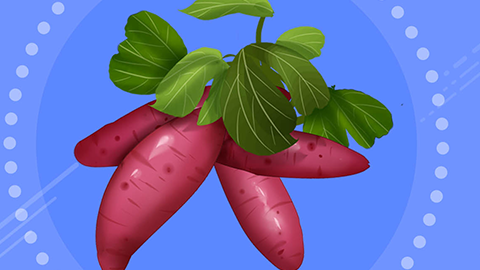Which Three Groups of People Should Not Eat Sweet Potato Leaves
Generally speaking, there is no such thing as "three groups of people who cannot eat sweet potato leaves." However, individuals who are allergic to sweet potato leaves, those with weak gastrointestinal function, patients with kidney stones, individuals with hypothyroidism, and patients with peptic ulcers are advised not to consume sweet potato leaves. Detailed explanations are as follows:
1. Individuals allergic to sweet potato leaves: After consuming sweet potato leaves, the immune system of these individuals may mistakenly identify plant proteins and other components in sweet potato leaves, triggering an allergic reaction. Common symptoms include skin itching, rashes, urticaria. Severe reactions may include laryngeal edema, difficulty breathing, and even life-threatening conditions.
2. Individuals with weak gastrointestinal function: Those with poor gastrointestinal function may experience increased digestive burden after consuming sweet potato leaves due to their high dietary fiber content. This may lead to discomforts such as abdominal distension, abdominal pain, and diarrhea, affecting normal gastrointestinal function.

3. Patients with kidney stones: Sweet potato leaves contain a certain amount of oxalic acid, which can easily combine with calcium in the body to form calcium oxalate stones. Consuming sweet potato leaves may cause existing kidney stones to increase in size or promote the formation of new stones, which is unfavorable for disease control and recovery.
4. Patients with hypothyroidism: Sweet potato leaves contain small amounts of goitrogenic substances that can interfere with thyroid hormone synthesis. Since patients with hypothyroidism already have insufficient thyroid hormone production, consuming sweet potato leaves may worsen thyroid dysfunction, affect metabolic functions, and hinder disease stability.
5. Patients with peptic ulcers: Individuals with gastric ulcers, duodenal ulcers, or other forms of peptic ulcers have damaged gastric or intestinal mucosa. Dietary fiber and plant acids in sweet potato leaves may irritate ulcerated areas, worsening symptoms such as pain and acid reflux, and delaying wound healing.
The above-mentioned groups should be clear about their dietary restrictions to avoid physical discomfort caused by consuming sweet potato leaves. Other populations should also control their intake, and blanching sweet potato leaves before cooking can help reduce oxalic acid content, ensuring dietary safety.




